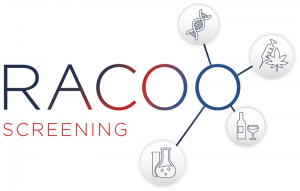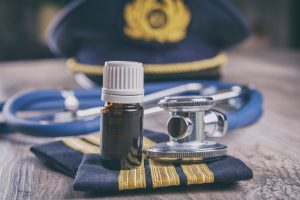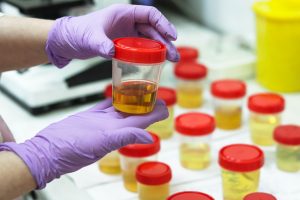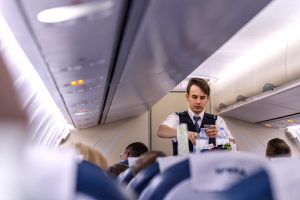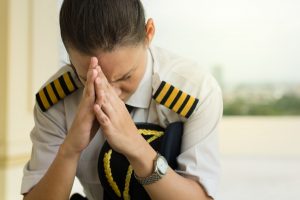Pilot drug testing for the aviation industry
Ensure the skies are safe with tailored aviation drug and alcohol testing.
1.2%
of commercial aviation accidents were estimated to be attributable to illicit drug use in a study by the Journal of Aviation, Space, and Environmental Medicine [1].
This poses significant risks for airlines, including:
- Impaired pilot decision-making: Increased safety concerns due to potential aviation incidents related to drugs or alcohol [2]
- Decreased trust from passengers: Leads to reduced flight bookings
- Increased legal liabilities: Causes increased scrutiny from civil aviation authorities due to positive drug tests [3]
Across the aviation sector, section 94 of the Transport Act 1985 requires roles such as pilots, flight navigators, flight engineers, cabin crew and air traffic controllers to be drug and alcohol tested [4].
Whether you’re in HR or upper management within the aviation sector, using Racoo’s expertise in pilot drug testing helps you identify risks before they become major incidents.
Implement aviation drug and alcohol testing to ensure a safe and compliant flying environment
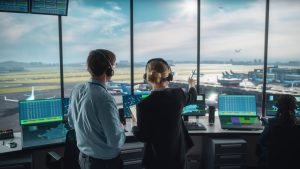
Ensure Safe Skies
Random drug testing and alcohol tests can deter crew members from substance abuse, potentially reducing the risk of in-flight incidents. Testing supports the wellbeing of pilots, flight crew and air traffic controllers.

Secure your safety reputation
Regular screening can reassure passengers of their safety, supporting the airline’s reputation and trustworthiness in the competitive aviation industry.
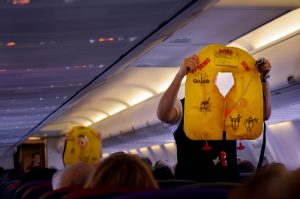
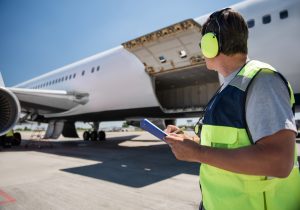
Uphold your institution’s policies
Our fully managed drug and alcohol testing service aligns with aviation regulations, ensuring you meet safety standards without the hassle of managing the testing process internally.
How can pilot drug testing support your airline?
Drug and alcohol testing involves checking pilots and crew members for substance influence.
Tests can be conducted post-incident, based on suspicions, or as part of a preventive random test program.
Racoo Screening’s tests can utilise methods like urine testing, detecting a range of substances from recreational drugs to prescription medications taken without a valid prescription.
Our tests promise:
-
Fully Managed, so you can focus on your operations
- Tailored to the aviation industry’s needs
- Legal and Ethical testing to ensure safe skies
Why Racoo?
Working within the air industry, you need to rely on your employees to guarantee flight safety, so guarding against substance abuse supports this.
The Air Navigation Order 2000 stipulates that “it is an offence for a crew member of an aircraft, an air traffic controller, or a licence maintenance engineer to be under the influence of drink or drugs so as to impair his capacity to carry out his aviation-related functions [4]”.
At Racoo, we design our aviation drug and alcohol testing to conform with your industry’s standards:
FAQs
About drug testing in the aviation industry
Under the UK Transport Act of 1985, Section 94, individuals in the following key aviation roles must not work under the influence of alcohol beyond the prescribed limits when performing their duties.
The roles that fall under this mandate for drug and alcohol testing include:
- Pilots
- Flight Navigators
- Flight Engineers
- Flight Radio-Telephony Operators
- Cabin Crew
- Trainers and Supervisors (Anyone attending the flight deck during flight for training, tests, observation, or recording experience)
- Air Traffic Controllers
- Licensed Aircraft Maintenance Engineers
- Ground crews, and other roles that are ancillary to the main aviation functions [4]
Yes, the Civil Aviation Authority states that any positive drug or alcohol test result for an aviation licence holder “should be reported to the CAA Medical Department”. A positive test result should also mean the airline or air traffic control company reviews how often testing is conducted, as the CAA states “the results of testing workers should influence future testing frequency [12]”.
The CAA rules state that which drugs to test for should be decided by the airline or air traffic control company alongside a medical advisor. Conditions that will influence which drugs to test for include:
- The location of the safety critical workers
- Employment
- Residence
- The availability of particular substances
- Accepted regional practices and
- Availability of medicines, certain types of food and drugs
- Cultural practices and the diversity of the workforce [12]
Yes, airlines in the UK can conduct drug and alcohol testing on pilots and cabin crew. The Civil Aviation Safety Authority (CASA) in the UK allows for two types of alcohol and drug testing under the Civil Aviation Safety Regulations 1998 (CASR): random testing and post-incident testing [5].
Only flight crew and cabin crew members with an assigned operational duty may be subject to an alcohol test [6]. Before being employed, prospective pilots and crew members are required to undergo drug and alcohol testing as part of the recruitment process [7].
The Civil Aviation Authority also recommends airlines and air traffic controllers “review and monitor the efficacy of the policy and related procedures” regularly to ensure their ongoing efficacy [8].
The Civil Aviation Authority recognises drug testing as a “sensitive” issue [9] so any employee who tests positive for illicit substances should be dealt with an empathy-first approach. However, a pilot who has failed a drug or alcohol test may face disciplinary actions, including suspension or termination, and could be reported to civil aviation authorities.
Breathalyser limit
For breathalyser testing, the prescribed breath/alcohol alcohol limits for ATCO’s, pilots, and cabin crew is 9 microgrammes in 100 millilitres of breath [6].
Blood alcohol concentration
The Department of Transportation limit for pilots in the UK is 20mg of alcohol for every 100ml of blood, which is one quarter of the current drink-driving limit in England (80mg/100ml) [10]. The UK Civil Aviation Authority is currently proposing that a maximum Blood Alcohol Concentration (BAC) limit of just 0.02% should be imposed on UK pilots [11].
A part of ensuring safe skies, air traffic controllers are subject to the same laws around illicit substances as pilots and flight crews. The Civil Aviation Authority states Air traffic control companies should establish and implement principles and procedures for occurrence investigation and analysis to consider the problematic use of psychoactive substances”, such as drug and alcohol screening [12].
Self-medication can have performance-degrading side effects, making it risky for pilots [13].
Alcohol is absorbed into the inner ear’s fluid, affecting balance. This can lead to spatial disorientation and potential vertigo, reducing pilot’s ability to safely control the plane.
Alcohol interferes with oxygen absorption, causing histotoxic hypoxia. At high altitudes, this effect is more pronounced due to reduced cabin pressure.
Both prescription and non-prescription drugs can impair judgement, coordination, and cause side effects like drowsiness, confusion, and blurred vision. Their effects can be magnified at altitude, so it’s essential for pilots to confirm any medication with their employer.
Some prescription drugs can affect judgement, mental acuity, and coordination. Consulting a medical expert ensures flight safety during a drug regimen.
Antihistamines can cause drowsiness, slow reaction time, and balance disturbances.
Sulfa drugs can cause allergic reactions, visual disturbances, dizziness, and impaired reaction time.
Tranquillisers can affect reaction time, concentration, and cause drowsiness, making them risky for pilots.
They can cause drowsiness, impair brain function, and affect judgement and decision-making skills.
Appetite suppressants can affect judgement by inducing feelings of well-being.
Appetite suppressants can affect judgement by inducing feelings of well-being.
Barbiturates, like phenobarbital, can significantly reduce alertness in pilots.
references
[1] www.libraryonline.erau Journal of Aviation, Space, and Environmental Medicine: Drug Use Trends in Aviation: Assessing the Risk of Pilot Impairment
[2, 13] www.skybrary.aero The Effects of Alcohol and Drugs on Pilot Performance
[3] www.seasidepalmbeach.com Flying Under The Influence: Truth Behind Pilot Drinking
[4, 10] www.legislation.gov.uk Railways and Transport Safety Act 2003
[5] www.casa.gov.au Australian Government Civil Aviation Authority: Drug and alcohol testing
[6] www.caa.co.uk UK Civil Aviation Authority: Alcohol testing on flight crew and cabin crew members in the United Kingdom
[7] www.cansfordlabs.co.uk What you need to know: drug and alcohol testing for the aviation industry
[8, 9, 12] www.caa.co.uk UK Civil Aviation Authority: Acceptable Means of Compliance (AMC) and Guidance Material (GM)
[11] www.ncbi.nlm.nih.gov Pilots’ knowledge of the relationship between alcohol consumption and levels of blood alcohol concentration
